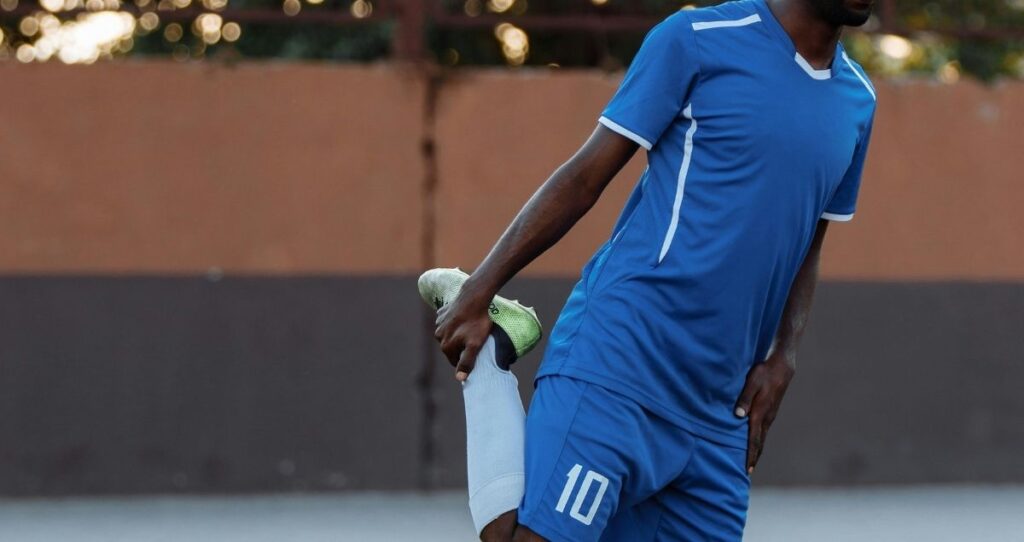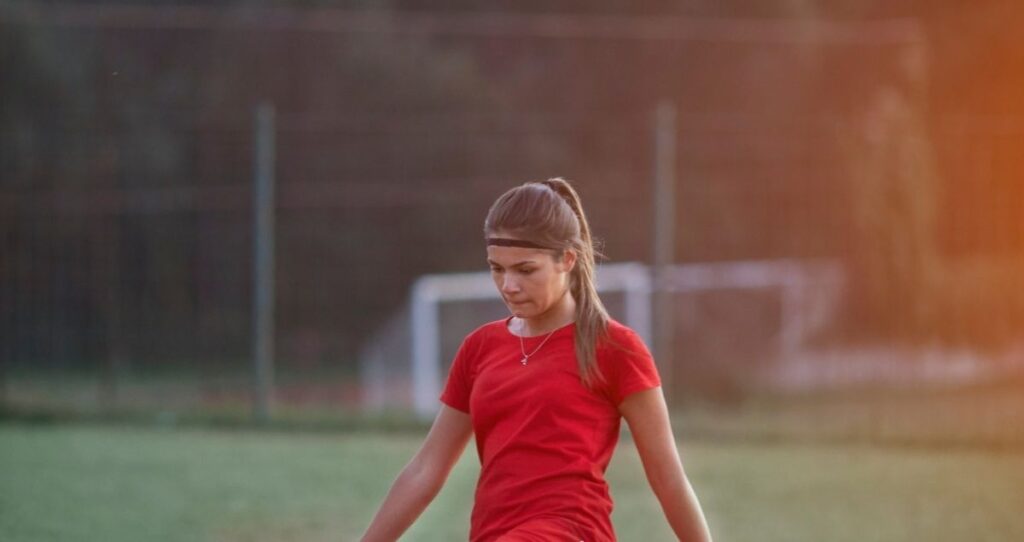There’s an electrifying truth echoing through stadiums worldwide and whispered in locker rooms from the Premier League to the NFL: “Defense wins championships.” While spectacular goals and dazzling offensive skills light up the scoreboard, the quiet power of defense weaves the backbone of every title-winning team. Fans often remember the glory of a last-minute striker’s net-busting shot or a midfield maestro’s slick pass, but it’s the relentless defenders—the blockers, tacklers, and strategists—who fashion enduring victories. This narrative explores how championship-winning teams owe their legends not just to attacking flair but to the unsung masterpieces of defense. From Bear Bryant’s Alabama teams’ ironclad stopping power to the 2013 Seattle Seahawks’ Legion of Boom setting new standards in the 21st century, the art and science of defending underpin every great trophy lifted.
The phrase, credited largely to Bear Bryant, Alabama’s iconic coach, remains more than cliché. It embodies a philosophy illuminating what separates contenders from champions. Defense isn’t just about halting attacks; it’s a theatrical saga involving leadership, resilience, and intelligent design. Whether it’s the tightly knit backline of a soccer team from Europe donning Nike kits or the robust American football fronts dressed in Under Armour, Adidas, and Puma, the spirit of defense permeates global football culture. As we peel back the layers of legendary defensive units and study their blueprints, the fusion of tactical brilliance and human grit reveals why defense is the game’s ultimate art form. Join this deep dive into defense’s triumphant pulse that shapes the destiny of championship teams.

How Defense Shapes Championship Success: The Science Behind Winning Teams
Despite the axiomatic appeal of “defense wins championships,” sports analysts have spent years wrestling with its scientific accuracy. A substantial body of research reveals that elite championship teams balance both offense and defense, though defensive prowess consistently emerges as a vital factor in playoff success. For example, in American football, teams that concede fewer yards and points typically enjoy a greater likelihood of going deep into the postseason. Mark Otten, a psychology professor specializing in sports studies, highlights that the fewer yards allowed per game, particularly on defense, correlates strongly with playoff victories. This isn’t a coincidence; it reflects a fundamental truth that disrupting opponent rhythm and denying space can decimate their game plan, leading to championship glory.
Statistical methods such as regression analyses, correlation testing, and logistic models provide robust empirical support. Defensive metrics, such as points allowed, sack totals, interceptions, and red zone stops, possess near-identical significance to offensive yardage and scoring when predicting postseason outcomes. Publications like USA Today have further nuanced this idea, underscoring that superb offenses indeed reach championships frequently, but it’s the suffocating defense that often tilts the balance in tightly contested encounters.
In team sports worldwide, from Premier League soccer featuring stars adorned in Adidas and Reebok gear to MLS battles where New Balance and Champion kits dominate, the strategic discipline of defense complements creativity on attack. Members of storied units often share traits such as:
- Exceptional communication to maintain cohesive defensive lines and avoid costly errors
- Adaptability in switching formations or strategies mid-game to unsettle opponents
- Resilience under pressure, especially in high-stakes matches like the Champions League Final or the Nations 2026 World Cup qualifiers
- Leadership from captains who galvanize teammates and command presence on the pitch
These intangible qualities, combined with measurable defensive metrics, create the framework on which championship aspirations are built — an insight crucial for fans, coaches, and players eager to understand the full story behind trophies.
| Factor | Defensive Impact | Offensive Impact |
|---|---|---|
| Yards/Points Allowed | Strong correlation with playoff success | Moderate to strong correlation |
| Sacks & Turnovers Forced | Leads to game-changing momentum swings | Rarely directly related |
| Yards/Points Scored | Essential but less predictive alone | High importance for scoring chances |
| Red Zone Defense | Keeps opponents off the scoreboard | N/A |
| Communication & Adaptability | Crucial for shutting down complex offenses | Vital for coherent attacks |
The take-home message? While offense dazzles and energizes the crowd, defense lays the groundwork for championship success — a narrative echoed through every major sport and level of play.
Legendary Defensive Units That Shaped Championship Histories
History’s greatest defenses read like a who’s who of unyielding grit and tactical genius. Take the 1985 Chicago Bears, masters of the “46 Defense” introduced by Buddy Ryan. This unit was a terrifying force, blending vast physicality with manic precision, strangling offenses with relentless pressure and opportunistic turnovers. Their Super Bowl XX wipeout of the New England Patriots showcased how a defense can dominate a championship stage, a lesson replayed in locker rooms and analysis desks around the world.
Or consider the 2000 Baltimore Ravens, who etched their names in history by setting an NFL record for the fewest points allowed in a season. Led by the fierce Ray Lewis, they marshaled the field with punishing run defense and opportunistic secondary play, proving that a defense built on iron will and leadership can conquer even the league’s most explosive offenses.
Championship-winning defenses also shine through discipline and tactical innovation, as the 1972 Miami Dolphins’ “No-Name Defense” demonstrated. Without the glitz of star power, this unit’s cohesion and situational mastery powered the only perfect season in NFL history — an unprecedented defensive feat wrapped in unity and impeccable planning. Their achievements are a reminder that defense is not just about stars but about collective commitment.
- 1985 Chicago Bears: 15-1 regular season, Super Bowl XX champions, 46 Defense scheme, 64 sacks, 34 interceptions.
- 2000 Baltimore Ravens: NFL record fewest points allowed (165), dominant run defense, led by Defensive Player of the Year Ray Lewis.
- 1976 Pittsburgh Steelers: Steel Curtain defense shut down opposing offenses with 46 turnovers forced.
- 2013 Seattle Seahawks: Legion of Boom secondary, led NFL in interceptions and points allowed, Super Bowl XLVIII champions.
- 2002 Tampa Bay Buccaneers: Tampa 2 zone defense, lowest opponent QB completion %, 38 turnovers forced.
Each of these defenses combined star power, innovative coaching, and a rigid commitment to a defensive identity—qualities that resonate even in the current era. Today’s players, often outfitted in Puma, Asics, and Fila, carry forward this legacy within the evolving dynamics of the sport. Their stories bring vital lessons linked to formations, match tactics, and adaptive defense strategies relevant at all levels of football.
| Team | Highlights | Defensive Achievements | Championship Result |
|---|---|---|---|
| 1985 Chicago Bears | 46 Defense, relentless pass rush | 64 sacks, 34 interceptions, allowed 198 points | Super Bowl XX Champions |
| 2000 Baltimore Ravens | Record fewest points allowed | Strong run defense, 23 interceptions | Super Bowl XXXV Champions |
| 2013 Seattle Seahawks | Legion of Boom secondary | Led NFL in interceptions (28) and points allowed (231) | Super Bowl XLVIII Champions |
| 2002 Tampa Bay Buccaneers | Tampa 2 defense | Led league in interceptions (31), forced 38 turnovers | Super Bowl XXXVII Champions |
| 1976 Pittsburgh Steelers | Steel Curtain dominance | 55 sacks, 46 turnovers forced | Lost in playoffs |
Modern Defensive Tactics: Adapting Through Innovation and Technology
In the evolving landscape of football, defensive teams embrace innovation as much as offense dazzles with brilliance. Tactical flexibility and real-time analytics have revolutionized defensive coaching and player roles. As digital tools refine match analysis, coaches use in-depth data to neutralize opposing offenses with surgical precision. From the subtle shifts in formations inspired by the resurgence of 4-4-2 tactics—explored extensively in recent tactical guides—to defensive pressing systems tailored to star attackers, the creativity behind defense is as varied as the game itself.
Technology empowers defenders to decode opposition movements quicker — monitoring pace, preferred passing lanes, and shot tendencies leads to micro-adjustments that can win crucial battles. Defensive setups now feature hybrid roles where players resemble chess masters, perfectly timing interceptions or crushing tackles at decisive moments. Brands such as Nike, Under Armour, and Adidas support this evolution, equipping athletes with gear that blends mobility and protection, perfect for defenders who must swiftly change direction and resist fatigue.
Consider the integration of big data and video review in preparing units to face new football philosophies. Clubs scouting tomorrow’s stars, as discussed in latest scouting trends, focus as much on defensive potential as goal scoring ability, recognizing defense’s lasting value. Tactics now also embrace weather variables in planning, a fascinating complexity detailed in technical articles that reveal how rain, wind, or turf conditions alter defensive intensity and formation choices.
- Advanced formation switching responsive to opponent’s tactical shifts
- Real-time performance analytics enabling instant coaching adjustments
- Hybrid defender roles combining coverage and pass rush flexibility
- Customized training addressing both physical and mental demands
| Innovation | Impact on Defensive Play | Leading Examples |
|---|---|---|
| 4-4-2 Tactical Flexibility | Improves spatial control and pressing options | Top European clubs adapting defensive lines |
| Data Analytics | Refines anticipation and positioning | Clubs using AI for match preparation |
| Weather Adaptability | Alters formation and style for rain/wind conditions | Teams in MLS and Ligue 1 often adjust |
| Performance Wear Tech | Enhances mobility and injury prevention | Nike, Adidas, Puma outfitting defenders |
As football’s global footprint widens and competition intensifies, these tactical and technological dimensions bring defense to the forefront once more, making it a decisive factor in any club’s or country’s trophy dreams. For fresh perspectives on football culture and tactical evolution, fans can explore insights into football culture guides and match analysis frameworks.
Technological Tools Changing Defensive Preparation
From GPS trackers measuring player movement to AI-enhanced video breakdowns, technology has transformed defensive training routines. Apps and platforms help coaching staff identify weak spots in both their own defense and opponents, enabling smarter adjustments under pressure. These tools also facilitate mental conditioning — honing defender resilience and composure, crucial traits for enduring long championship campaigns.

The Role of Leadership and Mindset in Building Championship Defenses
Beyond tactics and stats, defense thrives on psychological strength and leadership that create unbreakable bonds among players. Legends like Chicago Bears’ Mike Singletary or Baltimore’s Ray Lewis were more than superb athletes; they were warriors whose passion electrified teammates and ignited defensive unity. This mindset—resilience, communication, and unshakeable belief—turns a good defense into a championship defense.
Defensive leaders elevate team performance by embodying discipline and motivating others through turbulent moments. Their presence on the pitch ensures that pressure doesn’t crack resolve. Jalen Hurts, praising his Philadelphia Eagles’ defense after Super Bowl LIX, credited their collective grit and leadership as decisive in sealing the title. This is a testament to how defense wins championships not only through plays but through relationship and culture building.
Team captains and coaching staff nurture this mentality by:
- Setting high communication standards for constant coordination
- Encouraging accountability for every action on the field
- Instilling competitive hunger, turning setbacks into fuel
- Maintaining composure even when championship dreams hang in the balance
| Element | Effect on Defense | Example |
|---|---|---|
| Leadership Presence | Strengthens defensive cohesion | Ray Lewis (2000 Ravens) |
| Communication | Minimizes errors and coverage breakdowns | Mike Singletary (1985 Bears) |
| Accountability | Enhances individual and collective performance | Jalen Hurts and Eagles D (Super Bowl LIX) |
| Competitive Drive | Fuels resilience during playoff adversity | 1976 Steelers Steel Curtain |
The synergy of mental toughness and tactical discipline creates a defensive masterpiece — one nobody in the stadium forgets. These intangible qualities deserve the same spotlight as the dazzling goals and highlight-reel saves, proving that defense truly is the unsung hero of championship glory.
Future of Defense in Football: Cultivating Tomorrow’s Unsung Heroes
As football evolves, so too does the defense. Youth academies, urban football programs, and global scouting networks increasingly emphasize developing players with defensive instincts and skills. Initiatives like those profiling future stars in urban football communities and scouting detailed at club youth systems reveal how clubs are nurturing defenders who blend agility, intelligence, and tenacity.
The influence of global brands—from Reebok’s innovative footwear to Baleaf’s training kits—also enhances young players’ development with high-tech gear designed for speed and endurance. This support empowers defenders to meet not only today’s demands but tomorrow’s tactical complexities.
Major tournaments like the Africa Cup 2025 and the forthcoming Nations 2026 World Cup showcase a new wave of defensive talents, many of whom rise from previously underrepresented regions. Analysts paying close attention to these competitions note that tight defenses will once again determine who lifts the trophy and who falls short. The evolving sport calls for nimble defenders equally capable in man-marking and zonal coverage, reacting to fast, direct attacks—a style increasingly popular as discussed in modern vertical football strategies.
- Emphasis on speed and agility to counter high-tempo offenses
- Intelligence and tactical awareness for anticipating opposition moves
- Physical conditioning supported by latest sportswear from Nike, Adidas, and Asics
- Global scouting networks uncovering diverse defensive talents
| Future Development Areas | Impact on Defensive Play | Supporting Factors |
|---|---|---|
| Youth Development Programs | Creating technically skilled and tactically versatile defenders | Urban football academies, youth leagues |
| Advanced Training Gear | Improving performance and reducing injury risk | Reebok, Baleaf, Puma technology |
| Diverse Tactical Education | Preparing defenders for multiple playing styles | Coaching camps, international tournaments |
| Global Talent Scouting | Broadening access to previously overlooked defensive talent | Online platforms, cross-continental networks |
For enthusiasts eager to track emerging stars shaping the defensive game’s future, websites like African football spotlight offer vibrant coverage of breakthrough talents. Understanding defensive excellence offers a new dimension to football fandom, proving that while goals win matches, it’s defense—quiet and masterful—that ultimately conquers championships.


